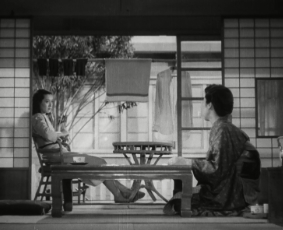Film analysis was always a fun thing to do when I was a student, enjoying the intellectual challenges and the heated (yet comradely) discussions with friends over considerable amounts of assorted recreational drugs.
Later, however, when I became a creator myself (writing, game design, and up to a certain point now, photography), I began to ask myself what film analysis is good for in creative and/or educational contexts. This popped back into in my mind recently during the completely unrelated occurrences of an ad-hoc game analysis in one of my courses and a casual conversation about film analysis with a colleague of mine over lunch on the same day, and I realized that my reservations toward film analysis and game analysis amount to pretty much the same thing.
Which doesn’t mean I’m not analyzing movies and games, far from it. I do it all the time! But what I do and how I do it might not strictly be compatible with the kind of analysis we know and love.
There are two major premises that determine how I look at it:
- I’m less interested in what a game or movie does than in how it does what it does.
- I’m less interested in what a method or technique does for a given game or movie than how I can learn something from this method or technique that I can put to use.
The first premise, granted, is a very postmodernist thing, while the second seems pretty practical and straightforward. Yet, it’s the first that would sail through most of the time, while the latter is not how this is usually approached, and it might even raise eyebrows. My idea is to analyze and think in markedly abstract ways to find and develop decidedly practical solutions for challenges in actual creative projects. (Which doesn’t mean straight-out copying such solutions—the rules of what a creative idea is or should be are always in effect for the content as well as for the form.)
I can go l’art pour l’art like the next gal or guy, but in educational contexts and/or creative projects, I—personally—would strongly opt for a reversed strategy:
- In most classroom and textbooks approaches, a selection of great movies or games is presented to demonstrate all kinds of methods and techniques that the students can learn, after which they should be able to analyze movies or games on their own and perhaps use some of these methods and techniques in creative projects.
Is there anything inherently wrong with that? Of course not! Preparing and executing a course or lecture along this paradigm demands, if done well, substantial domain knowledge, meticulous preparation, and didactic skill. Nevertheless:
- My approach would be that everyone taking part in a film or game analysis course brings their rough draft of a short original scene to the table (no admission without); works out and articulates what exactly they want their scene to accomplish not merely with regard to plot or narrative but with regard to the audience; and only then are movies or games selected and presented and analyzed that use methods and techniques related and/or applicable to what the students want their scenes to pull off.
Depending on the number of students, there should be enough creative and technical challenges to solve to make them familiar with a broad range of methods and techniques from great movies or games; but they also, and primarily, learn how to use them, practically, instead of merely marveling at what others achieved. (They should marvel, of course, and they certainly will when they realize how hard it is to put those methods and techniques into practice, or to come up with methods and techniques of their own.)
To learn how great masters expressed their visions and solved the creative and technical challenges attached to them is important and interesting and edifying. Yet, to develop and express one’s own vision and solve one’s own challenges is riveting and rewarding on top.
________________
Note: For those who are familiar with learning theories, this approach leans toward constructivism, not the dead horse of cognitivism that in most institutes of learning keeps being relentlessly flogged.
If you have something valuable to add or some interesting point to discuss, I’ll be looking forward to meeting you at Mastodon!

